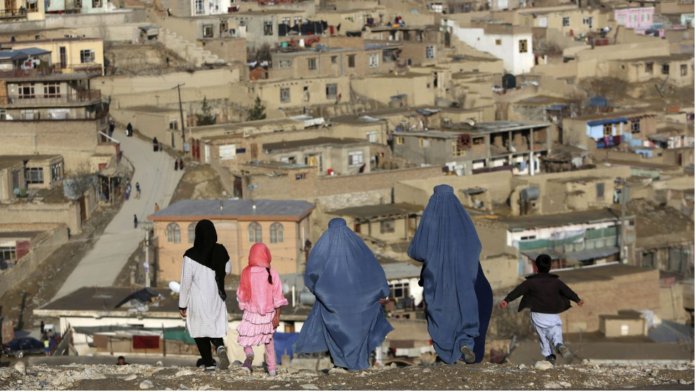By: Dr. Sahibzada Muhammad Usman
The United States has placed further sanctions on Afghanistan’s de facto Taliban administration in reaction to its continued unwillingness to provide Afghan women and girls their basic rights to work, education, and public mobility.
US Secretary of State Antony Blinken’s sanctions restrict the issuance of visas to current or former Taliban members, members of non-state security groups, and other individuals suspected of being responsible for, or complicit in, the repression of women and girls in Afghanistan through restrictive policies and violence.
Although the Taliban authorities have earned these harsh measures for their violations of women’s rights, the international community must ensure that subsequent penalties do not jeopardize the supply of critical humanitarian assistance to the Afghan people.
The Taliban’s return to power is an awful truth that the world must acknowledge. The international community must interact with the government in some capacity as a participant in the Afghan political process.
The US sanctions strategy distinguishes between engaging Taliban officials and legitimizing their authority. After all, the travel restriction was implemented after US Special Envoy for Afghanistan Thomas West, and CIA Deputy Director David Cohen visited their Afghan counterparts in Doha. But, there is a narrow line between participating in dialogue with Taliban commanders and legitimizing their de facto leadership. The minimal parameters of engagement with them should include
- the adoption of an Afghan-specific democratic political system,
- the safeguarding of basic human rights, and
- the end of persecution of ethnic and sectarian minorities.
There is no indication that the Taliban are prepared to accept even the most basic demands. Afghan women and children enjoyed relative freedom under US-backed Afghan administrations for two decades until the Taliban regime retook their nation.
Afghan women and girls were granted the right to continue to enjoy these same freedoms as part of the 2020 Doha Accord, which set the path for the present Taliban administration. The Taliban’s commanders were also openly committed to enabling girls to attend school, women to work and travel freely in public, and including members of minority groups in their administration.
None of these promises have been kept. In reality, the human rights situation has deteriorated over time, resulting in major rallies in Kabul by female activists and increased terrorism targeting minorities, notably the Hazara group.
The UN Assistance Mission in Afghanistan reported severe allegations of human rights violations under Taliban rule, including extrajudicial killings, arbitrary detentions, torture, restrictions on free speech, peaceful protest, and the ability of women and girls to access education, employment, and freedom of movement. Richard Bennett, the UN’s special rapporteur on human rights in Afghanistan, reaffirmed these conclusions in his first report on the condition of human rights violations under Taliban control and their catastrophic repercussions on the Afghan population. Obviously, the world community has lost faith in the Taliban rule, which conceals members of major terrorist groups and their leaders while violating the basic rights of women, girls, and minorities.
Taliban persecution affects Afghan males as much as women. All male instructors and high-school students in Kandahar were compelled to sign a written vow to follow the Taliban’s version of Shariah, which included a rigorous dress code and the mandatory growth of beards. The Taliban leadership has violated another critical provision of the Doha agreement, namely its leaders’ vow not to allow Afghanistan to become a safe haven for foreign terrorist organizations.
The execution of Al-Qaeda head Ayman Al-Zawahiri in a US precision-strike raid in downtown Kabul demonstrates that the Taliban administration maintained ties with the terrorist group responsible for the 9/11 attacks. For over three decades, Al-Qaeda has had the deadliest terrorist profile, which might reappear at any moment in another wave of global terrorism.
According to the UN, there are presently about 10,000 terrorists in Afghanistan. Terrorist organizations such as the Islamic Movement of Uzbekistan and the East Turkestan Islamic Movement have regrouped, causing alarm in Central Asian countries and China. Tehreek-e Taliban Pakistan had already resurfaced in tribal border regions and the Swat valley, where major demonstrations occurred when a school vehicle was assaulted.
The Islamic State-Khorasan Province is now the most active terrorist group in Afghanistan, capable of carrying out international terrorism like Al-Qaeda does. It looks to be fighting the Taliban, but its true objective is the minority Hazara community, which has been subjected to several bombings at seminaries and hospitals, including a horrific suicide bombing at an education facility in Kabul that killed 25 people, largely young women.
Obviously, the world community has lost faith in the Taliban rule, which conceals members of major terrorist groups and their leaders while violating the basic rights of women, girls, and minorities. That ought to be avoided, and alternatives developed for assisting the Afghan people.
Fortunately, big powers’ and regional governments’ interests in Afghanistan’s human rights and counterterrorism challenges coincide significantly. As a result, the five permanent members of the UN Security Council (China, Russia, France, the United States, and the United Kingdom) must band together to condemn Taliban rule. Their most powerful tool is diplomatic recognition, which must be withheld as long as Taliban leaders refuse to change their methods.
About Author:
Dr. Sahibzada Muhammad Usman
Research Scholar and Academic; Ph.D. in Political Science at the University of Pisa, Italy. Dr. Usman has participated in various national and international conferences and published 30 research articles in international journals.






